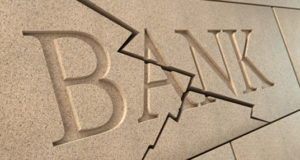By: Barbara Hager, Esq. and Amy Spears, Paralegal

Many times, our clients will rely on the foreclosure process when unit owners are not paying their common charges. On occasion the unit owners will have a mortgage on their unit. When this is the case, the Association has to list the mortgage in its foreclosure action to ensure that the Bank has notice of the foreclosure and obtain clear title should the foreclosure process be completed.
In recent years, the banking industry has seen highs and lows, with some of the lows causing various entities to file Bankruptcy. Most recently, Ditech Holding Corporation and all of its acting entities have filed for Chapter 11 Bankruptcy protection in the Southern New York District Bankruptcy Court.
When a bank such as Ditech files bankruptcy, an immediate stay is placed on any action that they are a party to as a Defendant. This is called the “Automatic Stay.” It means that all activity in the foreclosure case has to come to an immediate stop. We cannot move the foreclosure case forward until the Bankruptcy Case is dismissed, or we obtain Relief from the Automatic Stay. This can have ramifications on an Association as it can halt the action indefinitely, hampering the flow of income into the Association.
In order to proceed with the action, the Association must obtain Relief from the Automatic Stay, and do so as quickly as possible. Once Relief from the Automatic Stay is granted, we can move the foreclosure case fairly quickly to conclusion. The reason it is imperative to proceed so quickly is that the Association needs to consider the fact that, should the bank redeem in the Association’s action, the Association is only entitled to the nine-month priority (the equivalent of nine months’ common charges), and therefore is at risk of losing the amount due above the nine-month priority debt. Attorney Ronald Barba is working aggressively on obtaining Relief in the New York Bankruptcy Court to allow our Clients actions to proceed in a timely manner and minimize lost income to our association clients.

